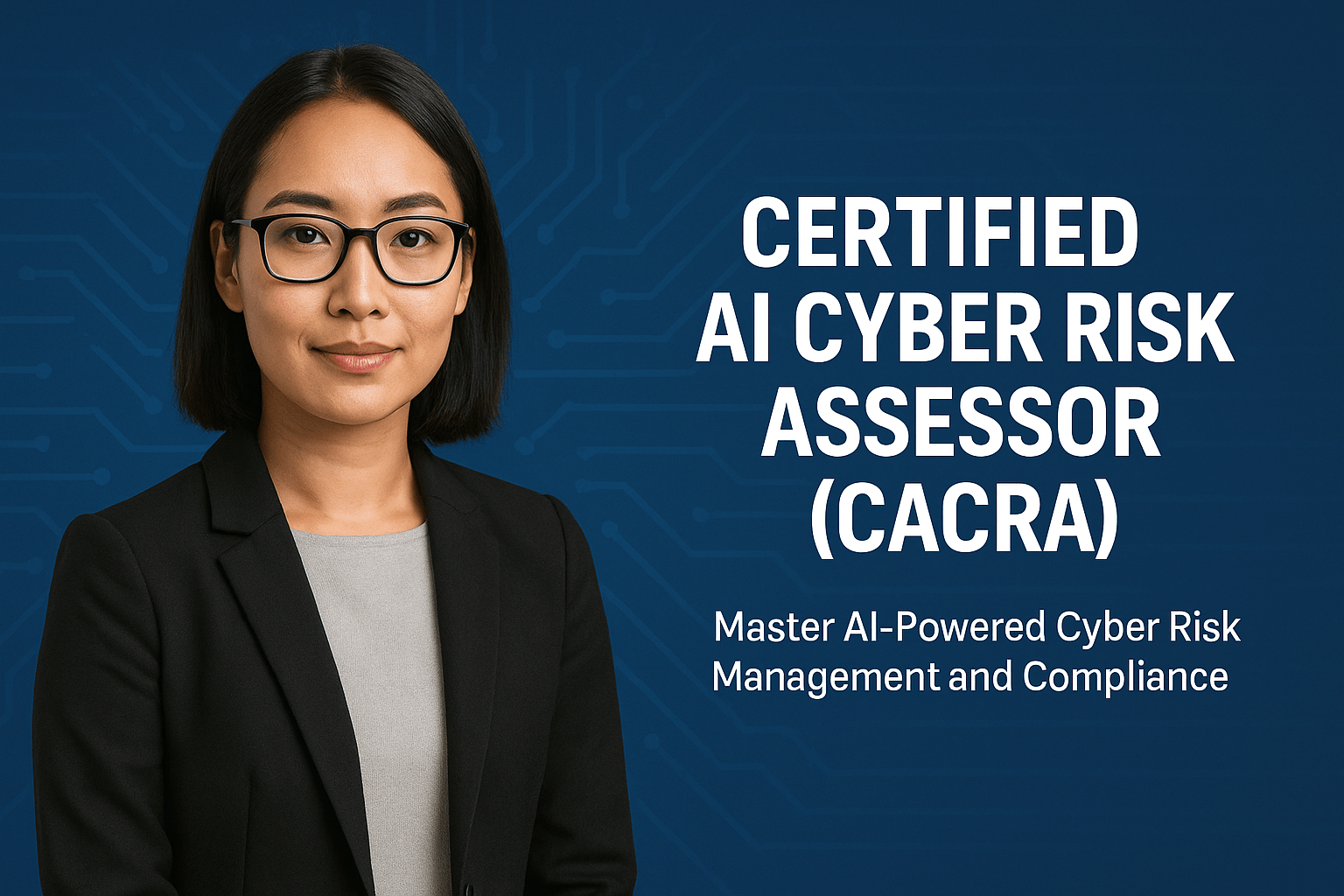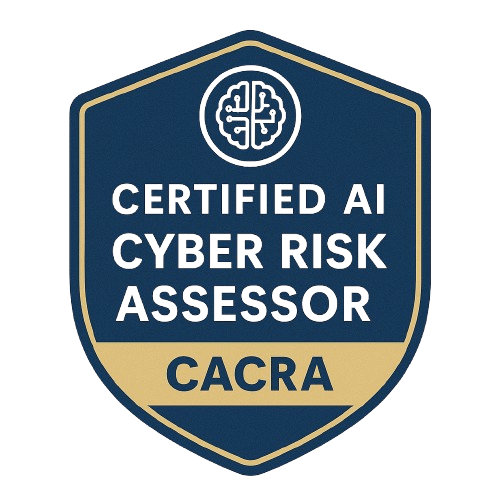
AI Cyber Risk Assessor is quickly becoming one of the most in-demand roles in today’s digitally driven world. As artificial intelligence continues to reshape industries from finance to healthcare and defence to retail the importance of understanding and managing AI-related cyber risks has never been more critical. The Certified AI Cyber Risk Assessor (CACRA) course equips professionals with the advanced tools, methodologies, and strategic frameworks required to identify, assess, and mitigate AI-powered threats while ensuring regulatory and ethical compliance.
This transformative certification goes beyond traditional cybersecurity training by offering a specialised focus on the intersection of AI technologies and cyber risk. Whether it’s a machine learning model embedded in a healthcare diagnostic tool or an NLP system used in customer service automation, AI systems create unique attack surfaces. The AI Cyber Risk Assessor must know how to map these risks ranging from adversarial machine learning, data poisoning, and model inversion to governance weaknesses like model explainability, auditability, and accountability gaps.
Designed by AI governance experts, cybersecurity professionals, and industry leaders, the CACRA certification blends theoretical depth with practical application. Participants will learn to conduct AI-specific threat modelling, analyse risks in AI-enabled infrastructures, evaluate third-party AI vendors, and align security protocols with standards such as ISO/IEC 42001:2023, NIST AI RMF, and GDPR.
You will explore real-world case studies on AI misuse from deepfake scams to algorithmic bias in surveillance and develop risk registers, red-team testing plans, and mitigation matrices tailored for AI environments. Whether you're working in IT risk, compliance, data protection, or cyber governance, this course gives you the professional edge to become a trusted AI Cyber Risk Assessor.
Imagine being able to confidently assess the cyber risk posture of an AI model used in autonomous vehicles or a generative AI system producing real-time business decisions. From setting up AI incident response playbooks to designing role-based AI access controls, the CACRA course arms you with the critical competencies needed to navigate the complex AI threat landscape.
The demand for qualified AI Cyber Risk Assessors is skyrocketing as global regulations tighten and organisations race to integrate AI into core operations. Governments, regulators, and enterprises are actively seeking skilled professionals who understand not only cybersecurity, but also how AI algorithms make decisions, the datasets they depend on, and the unintended consequences they might unleash.
By enrolling in the Certified AI Cyber Risk Assessor (CACRA) program, you position yourself at the frontline of future-proof cybersecurity. You will emerge with a professional badge and portfolio-ready artefacts, including a completed AI risk register, third-party audit checklist, model lifecycle risk assessment, and more making you job-ready from Day One.

https://thecasehq.com/courses/certified-ai-cyber-risk-assessor-cacra/?fsp_sid=3196
Comments
Post a Comment